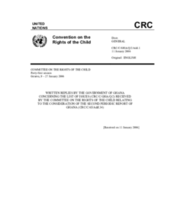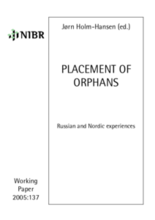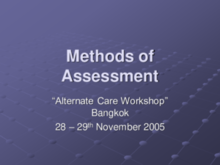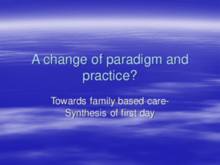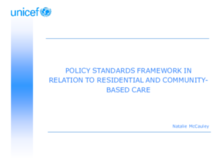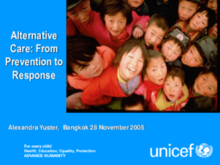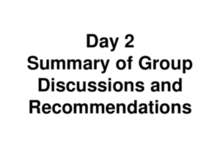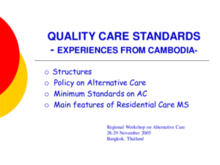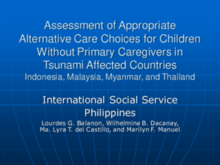Displaying 1651 - 1660 of 1798
This document provides written replies by the Government of Ghana concerning t issues received by the Committee on the Rights of the Child relating to the consideration of the second periodic report of Ghana. This includes issues related adoption and fostering.
The chapters in this Research Note are grouped in three sections. The first section (chapters 2–5) presents the international experiences. The second (chapters 6–7) presents the Russian background, whereas the third section (chapter 8–9) offers an updated presentation of Russian realities as to the placement of orphans.
This document provides an outline of the Workshop on Indicators and Information Systems, held on day 2 of the Alternative Care Workshop in Bangkok in November 2005.
This presentation was given at the Alternative Care Workshop in Bangkok in November 2005.
This presentation was given at the Alternative Care Workshop in Bangkok in November 2005. The presentation describes the slow shift toward family-based care options in the South East Asia region.
This presentation from UNICEF was given at the Alternative Care Workshop in Bangkok in November 2005. It outlines the standards and principles for residential and community-based care in the region.
This presentation from UNICEF was given at the Alternative Care Workshop in Bangkok in November 2005. It highlights the links between alternative care and social protection in the South East Asia region and outlines a strategic plan.
This document provides a summary of the group discussions and recommendations from day 2 of the Alternative Care Workshop held in Bangkok in November 2005 to discuss children's care in the region, post-tsunami.
This presentation was given at the Alternative Care Workshop in Bangkok in November 2005.
This presentation was given at the Alternative Care Workshop in Bangkok in November 2005.

